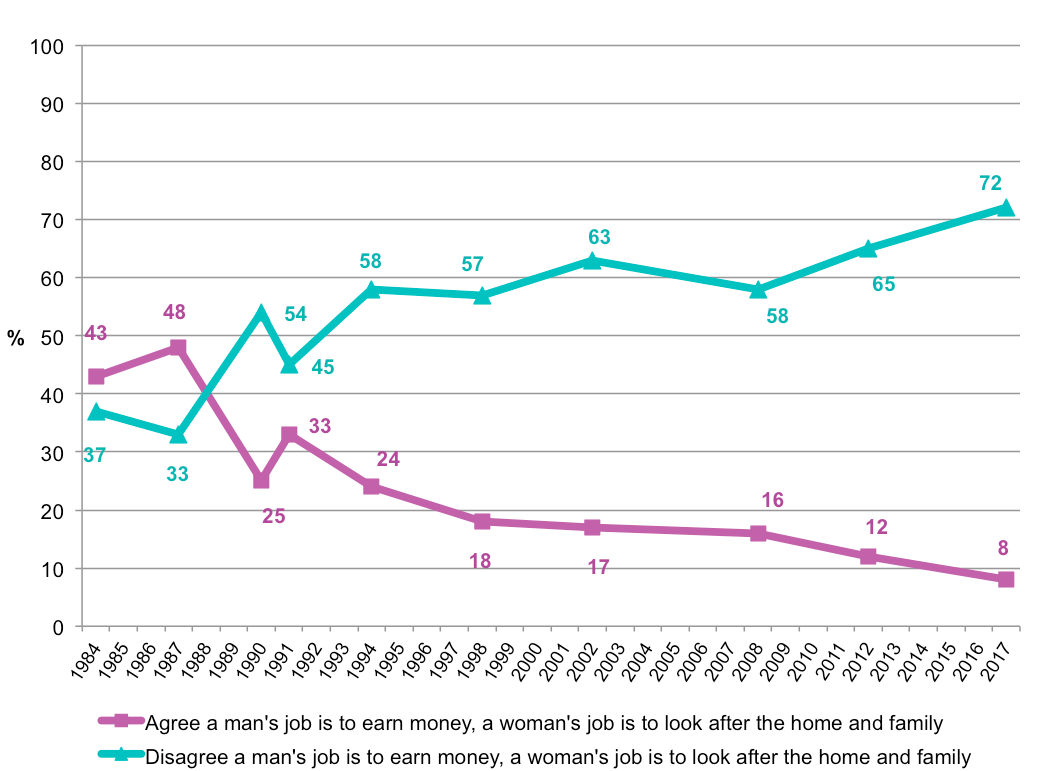More than half of men think catcalling is wrong, survey finds
The annual survey revealed that Brits are moving away from outdated views on gender roles

Your support helps us to tell the story
From reproductive rights to climate change to Big Tech, The Independent is on the ground when the story is developing. Whether it's investigating the financials of Elon Musk's pro-Trump PAC or producing our latest documentary, 'The A Word', which shines a light on the American women fighting for reproductive rights, we know how important it is to parse out the facts from the messaging.
At such a critical moment in US history, we need reporters on the ground. Your donation allows us to keep sending journalists to speak to both sides of the story.
The Independent is trusted by Americans across the entire political spectrum. And unlike many other quality news outlets, we choose not to lock Americans out of our reporting and analysis with paywalls. We believe quality journalism should be available to everyone, paid for by those who can afford it.
Your support makes all the difference.An annual survey which examines changing social attitudes in Britain has revealed that more than half of men in the UK think catcalling is unacceptable.
The survey adds new questions every year and for the first time, this year’s report examines attitudes towards street harassment, asking participants what they think of scenarios when men loudly comment on a woman’s appearance in public.
The British Social Attitudes survey is an annual report, now in its 35th year, conducted by NatCen, involving interviews with 3,988 UK adults who are selected at random from post code data and asked to take part.
57 per cent said it was “always” or “usually” wrong for men to make unsolicited comments - such as telling a woman she “looks gorgeous today” - a view that was interestingly more commonly held among men (61 per cent) than women (52 per cent).
Meanwhile, 45 per cent of respondents thought it was wrong for women to make similar comments towards men.
The survey also revealed that we’ve come a long way since the archaic gender roles that characterised the 1950s, when men traditionally earned the money while women managed the household.
Thankfully, this is no longer the case, as it found that nearly three-quarters (72 per cent) of Brits disagree with such conservative views, compared with just 58 per cent of survey respondents saying the same 10 year ago.
This figure was even less in 1988, when the survey found that 48 per cent of participants agreed that a woman’s primary responsibility was to take care of the home.
Generally speaking, the survey found that younger people with higher education were more likely than other social groups to hold progressive views on gender roles.
In addition to examining changing attitudes towards gender, the report also looked at perceptions of mothers of young children and parenting responsibilities.
“The people of Britain are moving away from the idea that men should be breadwinners and women homemakers,” said Nancy Kelley, the deputy chief executive of NatCen.

“Yet when we asked people if they thought mothers of pre-school age children should work, we found no increase in support in recent years, against a backdrop of several policy changes aiming to help working families manage work and childcare,” she added, referring to the 33 per cent of those questioned who thought mothers should stay at home and not return to work until their kids start primary school.
“People are supportive of parental leave being shared between men and women but, in practice, very few actually do," she added.
"This suggests that government must look beyond the law if they are hoping to balance raising a child between mums and dads.”
Join our commenting forum
Join thought-provoking conversations, follow other Independent readers and see their replies
Comments